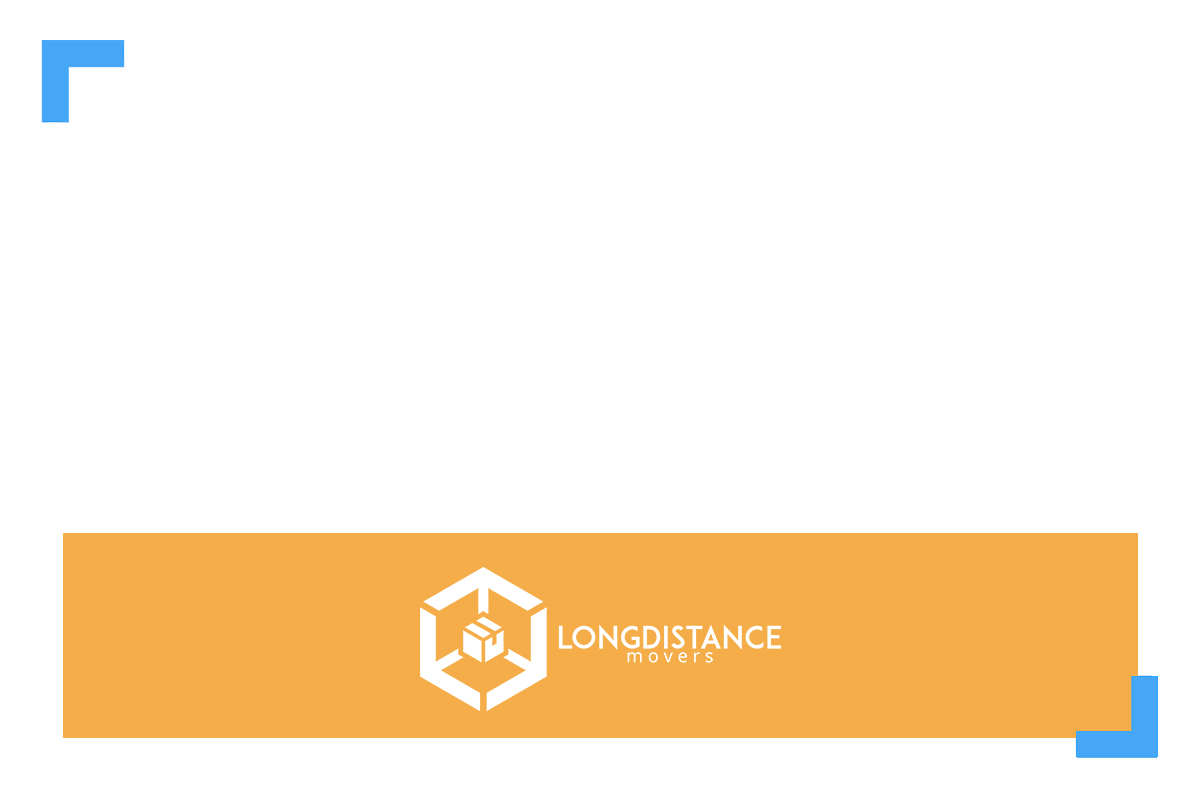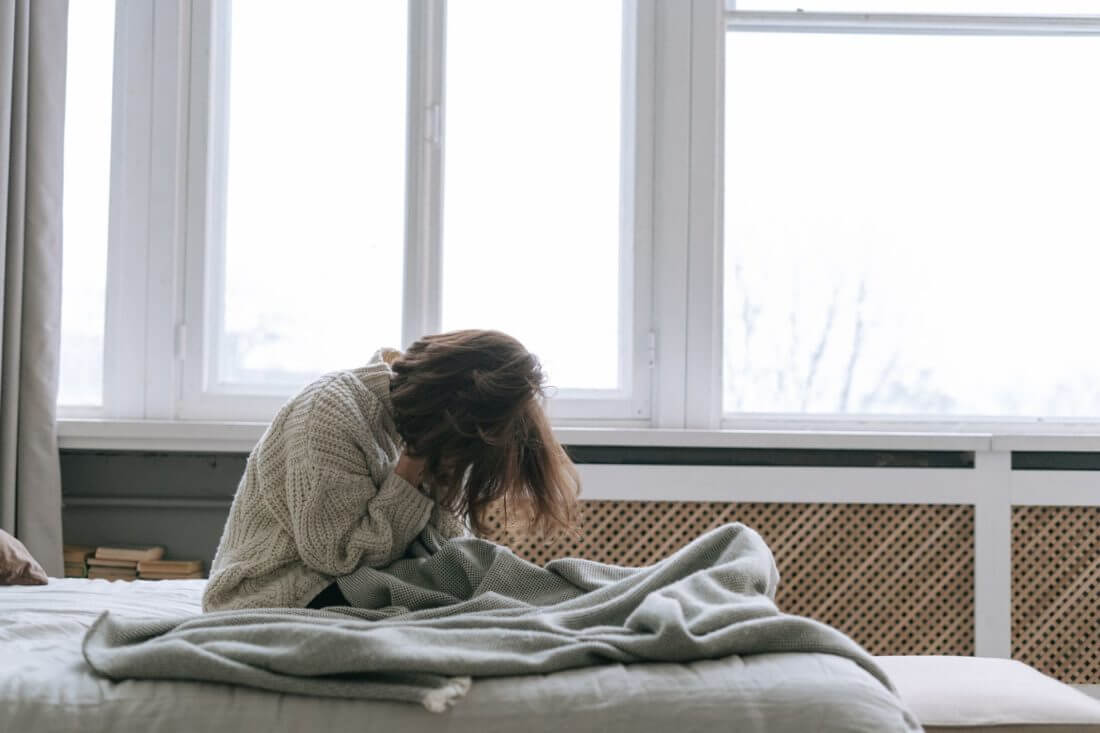It’s true that Americans consider relocations among the most stressful events in life. Just thinking about relocating can inspire us to create stressful scenarios in our minds, and that can cause adjustment insomnia. If not treated on time, and with the right methods, it can become a serious issue.


Regardless of the reasons for your move, whether you’re relocating for a job or you decided to move for love, this whole process can be quite stressful and time-consuming. As a result, you might have sleeping problems, even though you’re exhausted. Many studies have shown that over 30% of the population worldwide is suffering from this kind of problem, so it’s something you should think about, especially if you’re planning to relocate any time soon. That’s why we prepared the article where you can see what the symptoms are and preserve your health.
What Is Adjustment Insomnia and How to Recognize It After Cross-Country Moving
Every big change in life, not only the cross-country moving, can bring some issues like anxiety, depression, and problems with sleeping. However, achieving an efficient relocation and then adjusting to a new town can be too overwhelming for some people. All things you have to do for the relocation and the relocation stress can create bigger health and emotional issues.
Adjustment insomnia (or acute insomnia) usually lasts for a few days or months. It is a result of a stressful situation, like losing a member of your family or friend, a job change, or moving to a new house and environment. Here are some of the symptoms that should signalize you something’s not right:
- Poor concentration,
- Headaches,
- Fatigue,
- Mood swings.
Moving Services
Treat yourself with a white glove long distance moving service that’s based on the inventory list and not weight. This means a price guarantee, transparent move costs and premium moving service.
Learn morePacking Service
Sit back and relax, we’ve got packing services covered. We use moving blankets, shrink wrap, bubble wrap and even custom wooden crating. Your stuff will be protected and carefully handled during the move.
Learn moreAuto Transport
Move your car across the country in an open or enclosed trailer – for an affordable fee. We offer car transport as a standalone service, but you can bundle it with your household move and get a hefty discount.
Learn moreWhat Is an Adjustment Disorder and How Do You Know You Have Insomnia
An adjustment disorder means a behavioral or mental reaction to a stressful situation or change in our lives. We all react differently to stress, but if you experience something different in your daily routine, like having difficulties falling asleep or even depression, you should be prepared to fight back. That shouldn’t terrify you because if you realize you have problems and treat them on time, you can easily become a winner.
Learning all the relocation hacks you can and avoiding common moving mistakes can lead to problems that can affect your physical and psychological behavior. But, if you take all the symptoms seriously, you can get by without any serious consequences.


Insomnia Symptoms, Causes, and Treatment Before and After the Move
When you decided it was time to move, you probably weren’t thinking about all the tasks and things you need to do before and after the actual move. But, once you created a relocation checklist, you saw it’s not just hiring professionals with reliable cross-country moving services and preparing boxes and other supplies for the packing service.
Sleeplessness can have two most common types – the first one is short-term, lasting no more than three months, and the second one is long-term and lasts more than three months. It’s good to know that most people have problems sleeping, and nearly 70 million Americans suffer from one of these two types of sleep disorders. Let’s look at some of the other sleeplessness symptoms:
- Finding it very hard to get asleep,
- Waking up in the middle of the night several times,
- Being in bed and lie for hours awake,
- Getting up early and can’t fall asleep again,
- Feeling tired even after waking up,
- Feeling irritated and nervous during the whole day.
How to Treat Adjustment Disorders – Cognitive Behavioral Therapy Over Sleeping Pills
Cognitive-behavioral therapy for insomnia, often called CBT-I, is a treatment for chronic sleep problems and has shown to be very effective. CBT-I treatment helps you eliminate and control all the negative thoughts that could prevent your sleeping. Imagine you have to move during holidays when the whole family gathers around, and you’re the one who will miss. This certainly won’t be the easiest period for you, and it can cause some problems once you try to rest and take a daily nap.
CBT-I will create good sleeping habits that should keep your nights safe and sound. On the other hand, sleeping pills are indeed easier, but you should consider if they are the best solution for you. This medication could give you instant relief, but this kind of treatment can bring many side effects, like an addiction. One thing is sure – you shouldn’t take pills without a doctor’s advice.
Don’t Consider Every Information You Find Regarding This Kind of Disorders
The internet can be beneficial when it comes to finding some information, but at the same time, it can be disadvantageous. In this case, you can find plenty of information that can be useful and that you can use to treat your problem. Unfortunately, you’ll also find advice that is entirely useless and not true. That’s why it’s best to call your doctor first and talk about your issues with sleeping. Understandably, you’re under a lot of pressure and stress, especially when relocating during Coronavirus, but medical help will be the best solution for you.


Lack of Sleep Can Affect Your Mental and Physical Health When Using Long-Distance Moving Services
If you fear moving or it’s your first time to move alone, and you feel anxiety about relocating to another state, the essential thing for you is to know it’s a common stage in the relocation process. However, setting the diagnosis and seeking medical help is the best way to beat the depression and stress resulting from lack of sleep. Otherwise, you could end up having severe reactions that include chronic sleeping problems in the future.
Feeling anxious about relocating is completely normal, especially if you know that the average American lives in one house for 11 years. That’s a pretty long time, and most of us get attached to every little thing in our home or apartment. So, preparing your house for sale must be pretty challenging, and if you keep all those feelings inside, you can have some psychological and physical problems later. We all know how hard it is when you don’t have enough sleep during the night (medical recommendation is 8 hours) and how we can feel cranky and nervous the day after.


Learn What Are the Acute Insomnia Causes and Prevent Them From the Start
Having acute insomnia means you’re having problems sleeping for a short period of time. Usually, it lasts for a few weeks to a few months, and some traumatic event in your life causes it. That trauma could also be related to the relocation on a budget for the first time. Imagine how stressful it could be planning every little move because you created your relocation expenses checklist, and you realized the relocation budget doesn’t meet your expectations. This means you need to check what is the cheapest way to move out and maintain your health conditions as they were. In the text below, we’ll show you how to prevent common causes of sleep disorders when long-distance moving.
Things Before the Arrival of Long-Distance Movers That Can Cause Sleepless Nights
When wondering how to move and emotionally get through it, you might think it’s impossible. But, don’t worry, if you know some things that can cause sleep problems before the move, you should try your best to keep your health under control. The following things are the most common causes that could lead to sleeping disorders and depression:
- Time – not having enough free time for relocating process is very hard. It would be best if you considered taking some days off that you can dedicate to relocation planning.
- Unreliable long-distance movers – not being able to get in contact with the relocation crew is frustrating. If you choose unprofessional movers, you’ll end up with unexpected costs and unpleasant experiences.
- Lack of packing materials – get as many packing materials as you can. You shouldn’t interrupt the packing process just because you don’t have enough packing tape. You can check for some free supplies online on Craigslist.
- Many things to pack – packing is a tedious process, and you’re probably thinking how overwhelming it is. That’s why you should first declutter and then pack room by room.
What to Do After You Move Into Your New Home to Prevent Further Mental and Physical Issues
You probably think that once the professional long-distance movers near me unload all of your boxes from their truck, the whole relocation process would be over. Well, you’d be mistaken. There are a lot of things to do after moving, too. Make sure you take care of the following things and prevent further issues:
- Adapting to the unknown surroundings – it’s always hard to start over in an unfamiliar environment and make your new place feel like home.
- Meeting new people – after the move, you’re probably too tired and don’t feel like meeting new people. It’s important not to pressure yourself.
- Feeling homesick – it’s completely normal to feel homesick and, luckily, with all technology, you can easily stay in touch with your family and friends.
If you need some tips on efficiently building your daily routines and getting your life organized after the move, watch the video below.
Materials and Methods You Can Implement on Your Own to Reduce the Stress During the Move
A good strategic plan will help you overcome the anxiety and fear of relocating. So, if you want to have a successful relocation, the first thing you should do is to organize your move. Having a timeline and all of your important documents organized is something you should do because you probably won’t have time to think about every little detail when the relocation day comes.
The essential thing in the whole relocation process is to stay positive and always remember the goals and benefits of your move. What are all of the good stuff this relocation brings and all the new things you’ll learn?
Sleep Should Be Your Top Priority When Planning Your Cross Country Move
However, between thinking about all the positive sides of the move, you have to remember to get enough sleep. Nothing will do you better than a good rest. Once you move to your new home, you’ll be exhausted, and that’s why you should get to bed one hour before you usually go to bed. It will help you calm down and relax and at the same time prepare your body for sleeping time.


Don’t Hesitate to Ask for Professional Help From Cross-Country Movers
If you feel too overwhelmed and like you can’t pull this off on your own, the best solution is to seek medical help from a professional. On the other hand, if you tried some methods to reduce stress and avoid sleepless nights, contact your doctor and ask about your next moves.


A Reliable Long-Distance Moving Company Can Be a Great Help When Battling With Sleeping Disorders
Having a trustworthy cross-country moving company on your side when asking yourself how do you fix severe insomnia will be very helpful. That way, you don’t have to worry about the storage facility, and your belongings will arrive safely since you’ll have relocation insurance. Also, if you weren’t sure the auto transport is a good idea, this task will be a breeze with a professional crew. With all these things that could make you anxious set aside, you will have enough time to dedicate yourself and think about your health.
FAQ
What Is Adjustment Insomnia, and What Are the Symptoms?
Adjustment insomnia is a type of sleeplessness that occurs in response to a new situation or environment. Symptoms include difficulty falling asleep, waking up frequently during the night, feeling unrested and irritable during the day, having difficulty staying focused and alert throughout the day, and feeling sleepy all day long. Adjustment insomnia can be a sign of an underlying issue such as anxiety or depression and can persist until more strategies are put into place to help manage it.
What Are the Causes of Adjustment Insomnia?
Adjustment insomnia can be caused by a variety of things, such as stress, anxiety, depression, changes in routine or environment, and even physical and emotional trauma. Additionally, lifestyle factors such as poor sleep hygiene habits, excessive caffeine intake during the day, and late-night screen usage can contribute to the development of adjustment insomnia. It is important to identify potential causes of adjustment insomnia in order to seek proper treatment.
How Is Adjustment Insomnia Different From Other Types of Insomnia?
Adjustment insomnia is distinct from other types of insomnia due to its being directly tied to significant life events. Whereas other forms of insomnia can be caused by physical discomfort or health issues, adjustment insomnia is usually brought on by stressors and changes in lifestyle. As such, it is important to identify the triggers of adjustment insomnia in order to better understand why it has developed and how it can be effectively managed.
How Long Does Adjustment Insomnia Typically Last?
The duration of adjustment insomnia varies greatly depending on the individual and the cause. Generally speaking, it can last anywhere from a few days to several months, although in rare cases it may persist for longer than a year. Fortunately, with effective management and treatment, many people are able to recover from adjustment insomnia within just a few weeks.
What Are Some Common Triggers for Adjustment Insomnia?
Common triggers for adjustment insomnia include cross-country moving to a new home, changing jobs, entering into a new relationship, starting or ending a course of study, and experiencing the death or injury of someone close. Other life events such as financial changes, or even just the anticipation of an upcoming event can likewise cause adjustment insomnia. By recognizing the potential triggers associated with this type of insomnia, it is possible to take proactive steps in order to prevent it from taking hold.
How Can I Manage the Symptoms of Adjustment Insomnia?
Managing the symptoms of adjustment insomnia often involves following a good sleep hygiene routine and making lifestyle changes. A regular bedtime routine, with an emphasis on relaxation techniques, can help to improve overall sleep quality. Additionally, limiting caffeine intake and avoiding alcohol before bed can have a positive effect on sleep patterns. For more persistent cases, talking to a medical professional or mental health provider may be beneficial in order to determine the best treatment approaches.
What Are the Best Ways to Prevent Adjustment Insomnia?
One of the best ways to prevent adjustment insomnia is by taking proactive steps to manage any potential triggers. If you are aware that a major life event such as a relocation or change in job is on the horizon, it can help to plan ahead and make additional time for rest and relaxation leading up to the event. Additionally, engaging in regular exercise, eating healthy meals, and maintaining adequate sleep hygiene are all important measures for promoting better overall health and preventing adjustment insomnia.
What Are the Risks of Leaving Adjustment Insomnia Untreated?
Leaving adjustment insomnia untreated can have a negative impact on both physical and mental health. Fatigue, irritability, difficulty concentrating, weakened immune system, and depression is just some of the potential risks associated with poor sleep quality and chronic insomnia. Without proper treatment or lifestyle modifications aimed at improving sleep quality, these symptoms can worsen over time, leading to more serious complications such as anxiety or stress-related disorders.
How Can I Distinguish Adjustment Insomnia From Other Sleep Disorders?
Adjustment insomnia can be distinguished from other sleep disorders in several ways. First and foremost, it is important to note that adjustment insomnia is a specific type of insomnia triggered by a major life change such as relocation or a job change. Symptoms associated with this disorder generally appear within the first few weeks after the life event and may include difficulty falling asleep or staying asleep for an adequate amount of time. On the other hand, other types of insomnia may arise gradually and can last for much longer than adjustment insomnia, often requiring more intensive treatment strategies.
What Are the Best Sleep Aids for Managing Adjustment Insomnia?
The best sleep aids for managing adjustment insomnia are those that focus on improving sleep quality. Cognitive behavioral therapy is one of the most effective approaches, as it helps individuals identify and address the triggers of their sleeplessness. Additionally, lifestyle modifications such as reducing caffeine consumption or avoiding screen time before bed can have a positive impact on overall sleep hygiene and aid in treating adjustment insomnia. Finally, over-the-counter medications may be used to help with short-term symptoms. It is important to note, however, that they are not a long-term solution and should be taken with caution.
Are There Any Natural Remedies That Can Help With Adjustment Insomnia?
Yes, there are natural remedies that can help with adjustment insomnia. Relaxation techniques such as deep breathing exercises, progressive muscle relaxation, and guided imagery can help promote more restful sleep. Additionally, engaging in regular physical exercise during the day has also been found to have positive effects on sleep quality. Additionally, herbs such as valerian root, passionflower, and chamomile have calming properties that can improve sleep quality. Finally, certain dietary changes such as reducing caffeine intake, limiting alcohol consumption, and avoiding eating close to bedtime may also be beneficial for obtaining better sleep.
When Should I Seek Medical Treatment for Adjustment Insomnia?
If you have tried several natural remedies and still find yourself struggling with adjustment insomnia, it may be time to talk to a healthcare professional. A doctor can help by assessing your medical history and providing appropriate treatment such as medication or psychotherapy. If you experience extreme difficulty sleeping, or if your sleep deprivation continues for more than two weeks, it is important to seek out medical attention in order to ensure the best prognosis.
How Can I Adjust My Sleep Routine to Reduce the Risk of Adjustment Insomnia?
To reduce the risk of adjustment insomnia, it is important to maintain a consistent sleep schedule. Going to bed at roughly the same time each night and getting up at the same time each morning can help train your body to fall asleep and wake up on its own natural rhythm. Additionally, it is important to establish a pre-bedtime routine, such as reading or taking a warm bath that cues the body to wind down before bed. Avoiding activities like watching TV or using electronics in the hour leading up to bedtime can also be beneficial for better sleep quality.
What Are Some Common Mistakes People Make When Trying to Manage Adjustment Insomnia?
People often make the mistake of relying on sleeping pills or alcohol to help with adjustment insomnia. While these may offer temporary relief, they can disrupt natural sleep patterns and lead to long-term repercussions such as dependence and addiction. It is also important to avoid having caffeine or other stimulants later in the day. Similarly, napping during the day can interfere with night-time sleep and should be avoided if possible. Finally, turning off all electronics at least an hour before bedtime will ensure a more restful sleep.
How Can I Make Sure That Adjustment Insomnia Doesn’t Become a Chronic Problem?
The best way to ensure that adjustment insomnia does not become a chronic problem is to establish healthy sleep habits and maintain consistent sleep patterns. Creating and sticking to a regular bedtime routine, such as reading or taking a warm bath, can help train the body to fall asleep on its own regularly. Additionally, avoiding stimulants such as caffeine and electronics in the hour leading up to bedtime can also help encourage better sleep quality. Finally, if necessary, seeking professional help from a doctor or therapist may be beneficial in managing this kind of sleeping disorder more effectively.





